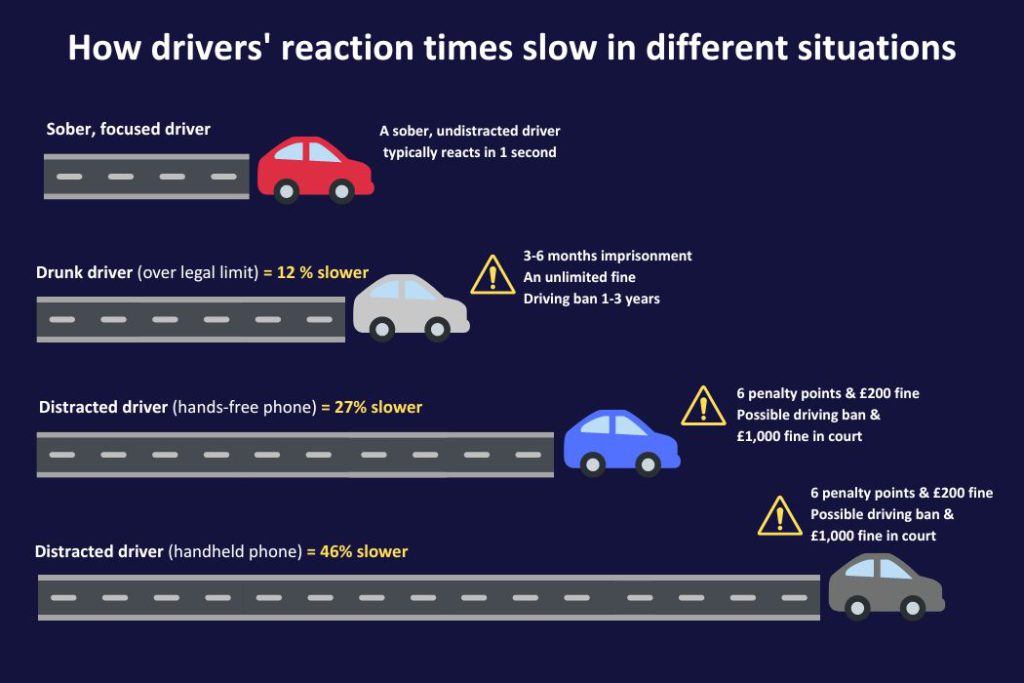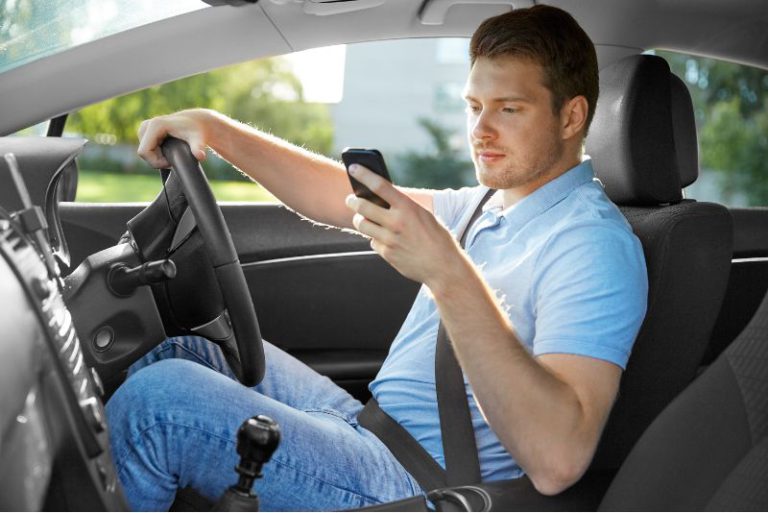For law-abiding road users and pedestrians, drivers who carelessly scroll, tap, or text on their mobile phones while behind the wheel can be frustrating, if not downright scary. Mobile phones are the reason for an alarming number of near-misses, accidents and even fatalities on UK roads.
Now, a new development in road camera technology could make you breath a sigh of relief – or if you’re a distracted driver, make you sit up and pay attention!
The UK has now seen the introduction of the world’s first AI speed camera, which has the ability to scan drivers inside their cars if they are caught speeding. Crucially, as well as detecting how far over the speed limit a driver is travelling, the 4D radar and high-resolution cameras can capture those behind the wheel who are using a mobile phone.
Installed on the A23 in Lambeth, South London, the AI-based technology can also detect if people aren’t wearing their seatbelts, or if there are too many people inside the vehicle. It can monitor up to six lanes of traffic and will be used in conjunction with other cameras on the roads.
There has been some initial criticism levelled at this type of camera, questioning how intrusive the level of surveillance is, and linking to wider uncertainty about Artificial Intelligence. However, the RAC has reassured drivers that, if they obey the laws of the roads and stick to the speed limit, they will have nothing to worry about.
What’s more, drivers are broadly supportive of camera-based technology being used to enforce the law. And, for distracted driving, the data speaks for itself!
How dangerous is using your mobile phone when driving?
The latest report from the Department for Transport (DfT), there has been a sharp rise in the number of road deaths in Britain, up by 8.7% in 2022 compared to the previous year. But how many can be attributed to mobile phones?
Government research shows that, worryingly, mobile phones are a growing presence in motorists’ journeys, with motorists describing an increasing dependence on their mobile phone. Some 12% of drivers reported needing to see notifications or calls coming through on their device while driving, in order to respond quickly, and the same number agreed they need to use their phone while making long journeys to “fill the time”. What’s more, 14% of those surveyed thought using their phone while driving doesn’t distract them.
But this simply isn’t true; drivers using either a hands-free or a handheld mobile phone have slower hazard-recognition and slower reactions. You are four times more likely to be in a crash if you use your phone when driving.

It doesn’t matter how careful you are – a split-second lapse in concentration by being distracted by a call or text can result in a crash. At 30mph, a car can travel 100 feet in just 2.3 seconds, which is more than enough time for a hazard to emerge.
What are the rules for using your mobile phone in a vehicle?
As of January 2022, drivers are banned from holding their mobile phones for any reason. This means that you cannot touch your mobile phone to answer a call, and you are not allowed to use your device when waiting in queues or at traffic lights. If you are supervising a learner driver, you cannot use your mobile device either.

There is no law preventing you from ‘tapping’ your phone while it’s on a fixed mount – however, the police can still charge you for driving without due care and attention or careless driving. You are only legally allowed to answer calls if your mobile is already set up with hands-free capability.
Similarly, sat-nav is permitted, but only if it has already been set up as hands-free before you set off on your journey. It must also be securely mounted in a holder that doesn’t obstruct your view of the road. So, you can’t just prop your phone up on the dashboard – if your vehicle doesn’t have a navigation system built in, purchasing a mounted sat-nav could be worthwhile. It means you won’t have to rely on your phone battery and data, or get distracted by other notifications popping up on the screen!
The only time when you can use your mobile phone in your hands while driving is to call 999 or 112, if it isn’t safe to stop. You are also permitted to use your mobile to make contactless payments at a drive through or tollbooth when your vehicle is stationary, and also when safely parked and with your engine switched off.
What’s the cost of using your mobile phone while driving?
If you’re caught using your mobile phone illegally while behind the wheel, there are serious personal consequences, as well as the severe danger that you pose to other road users and pedestrians.
You will face a £200 fine and 6 points on your licence if you’re caught. If you already have points on your licence, you risk losing it altogether if you receive a total of 12. That means that being caught just twice in three years could see you lose your licence. In extreme cases, you can be taken to court and face a fine of £2,000 and disqualification from driving.
New and learner drivers should also take heed; you’re only allowed to rack up 6 penalty points within two years, so if you’ve been driving for less than two years you could lose your license. Learner drivers caught using their mobile phone will be automatically banned from driving.
Even if you are adhering to the rules about holding your mobile phone, you can still be fined if the police believe you are distracted by your device and not in proper control of your vehicle. So, if you find yourself easily or frequently distracted with your phone while driving, try switching on flight mode or turning it off altogether. Just note that you can still be prosecuted for holding your mobile phone, even if it is turned off or in-flight mode.
Many of us strive to be good drivers, but we should all be aware of potential dangers and refresh our knowledge of the road and safety laws. We urge you to share this article with friends and family, to help spread the message that using your phone while driving is incredibly dangerous and has serious repercussions.
Our friendly local insurance advisors are experts in all things car insurance, including mobile-phone related claims. Feel free to give them a ring or head into your local branch to get the advice you need.
You could also read:
- How and When to Report Dangerous Driving in the UK
- Driving Without Due Care and Attention: What to Know
Sources: RAC, Police.UK, Think!, Gov.UK

